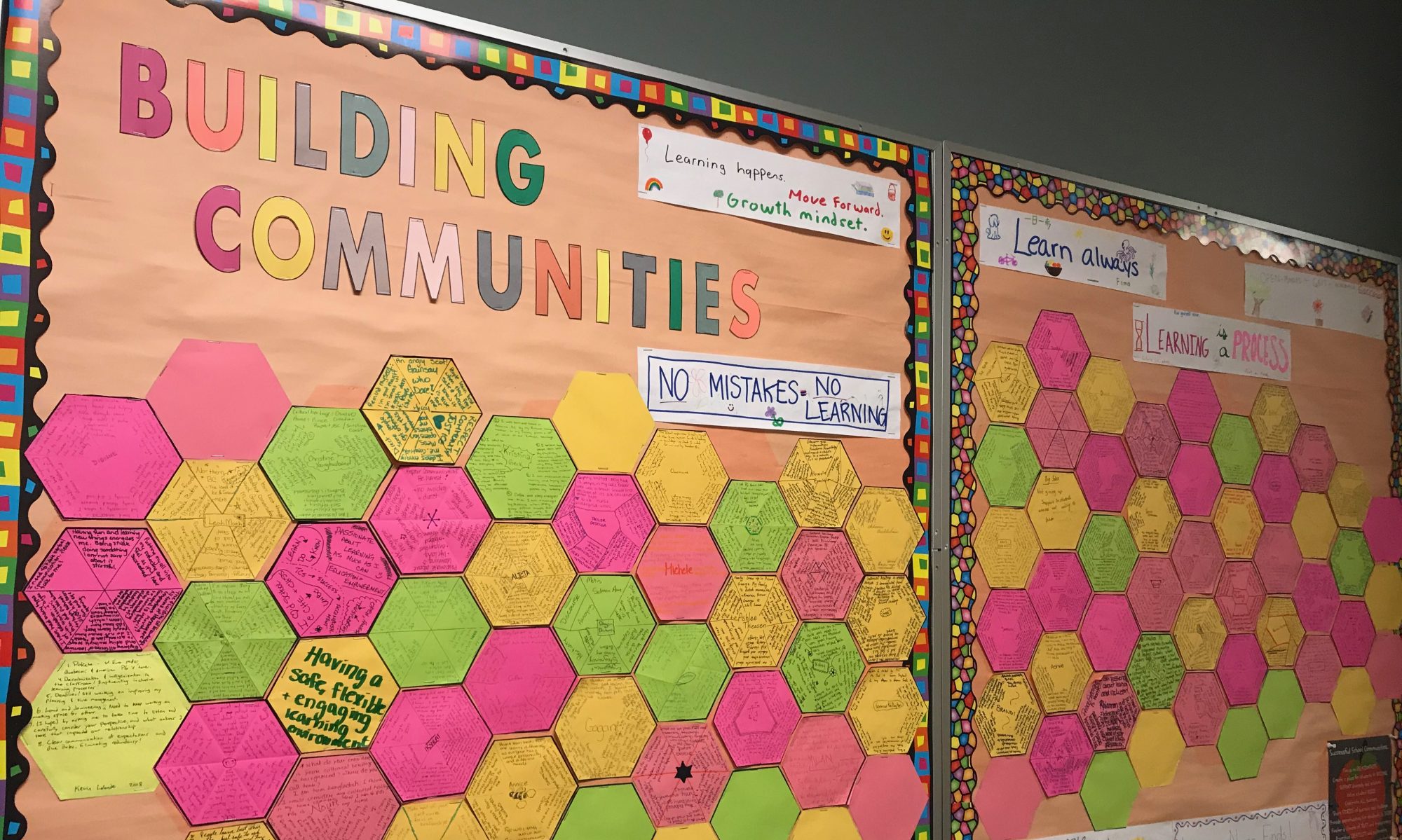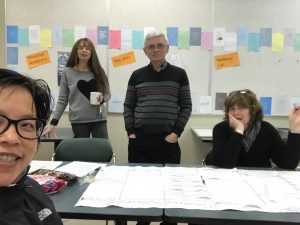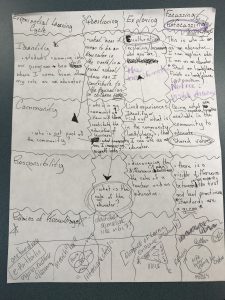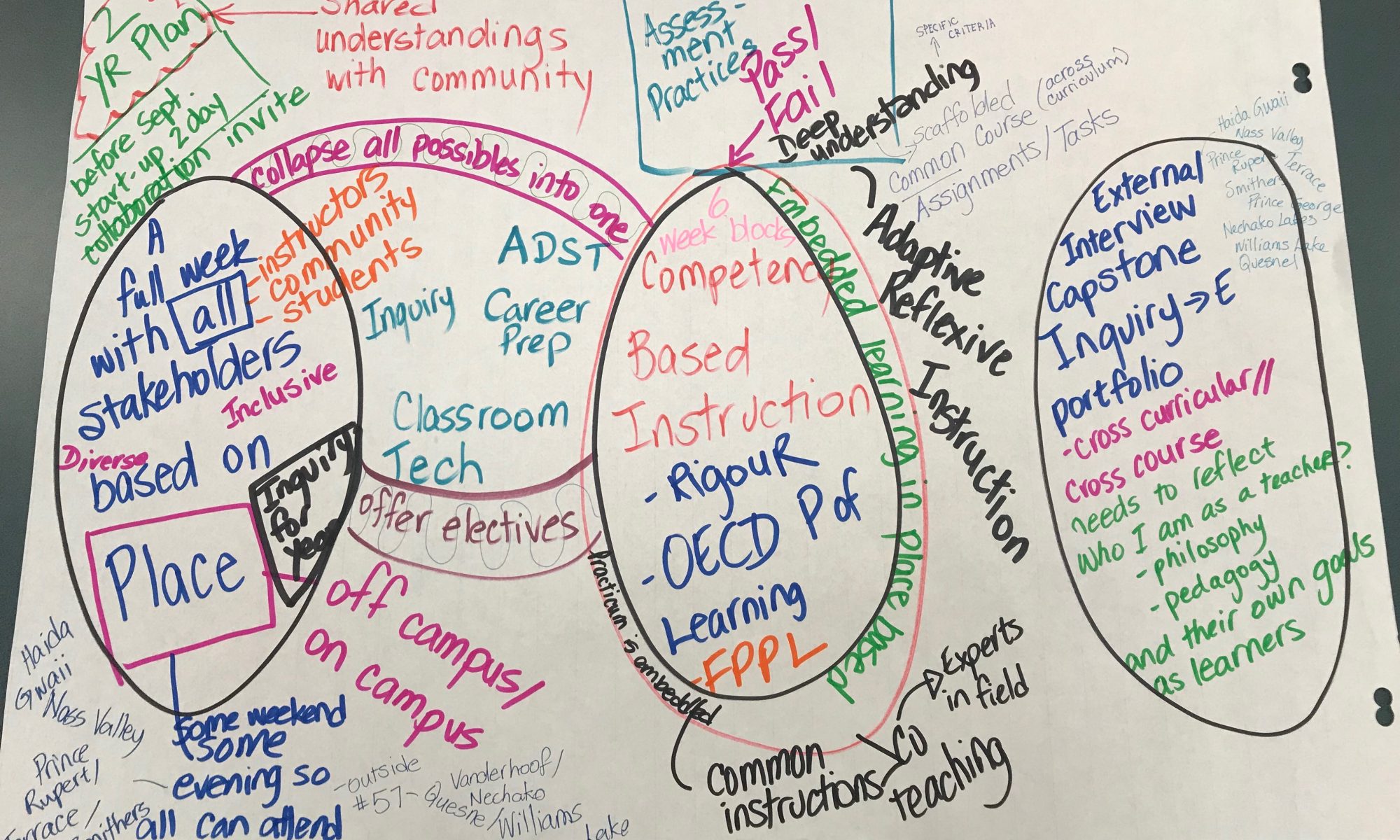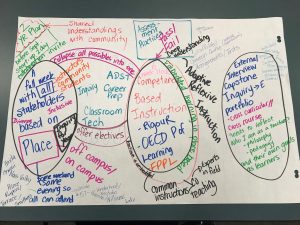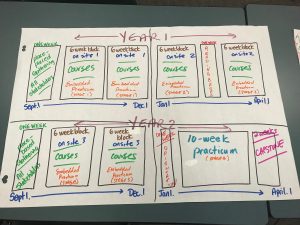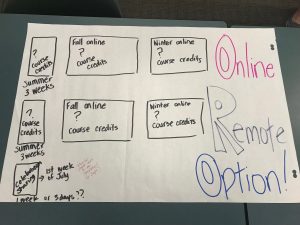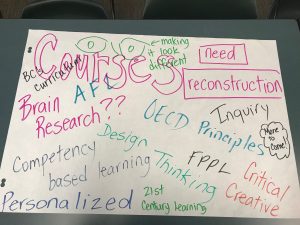Posted by CYH: I would like to post a few ideas and questions as we move forward with our thinking about redesign. This involves the idea of length of time, offering credits to recruit and recognize Coaching Teachers for 15+, and post-baccalaureate program offered at UNBC Prince George or remotely.
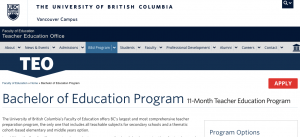
http://teach.educ.ubc.ca/bachelor-of-education-program/
The UBC Teacher Education Program in Vancouver currently offers their BEd program in 11-months. Ours is offered in 16-months or 4-terms. SFU has moved to 16-months for PDP as well. http://www.sfu.ca/education/teaching/
I wonder about how long UNBC should take for students to be certified. I believe this will be discussed in our upcoming design committee meeting. I’ve heard of people choosing UBC over UNBC because of certifying earlier and this person is a Prince George resident. How do we make ourselves more marketable, competitive, and viable to those who wish to become teachers?
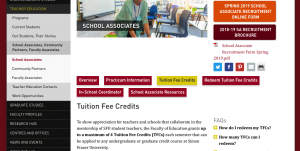
https://www.sfu.ca/education/teachersed/fa-sa/school-associates/tuition-fee-credits.html
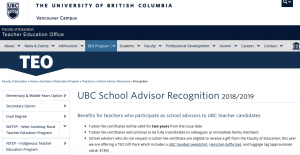
I think about recruiting and retaining Coaching Teachers for our practicum placements. Practicum Mentors have contracts with UNBC but Coaching Teachers are recognized with gifts. UBC and SFU offer tuition credits for Coaching Teachers (aka. School Associates or Teacher Sponsors). I wonder if this is possible for UNBC. This was discussed briefly on Nov. 2/3. Another possibility that was discussed was practicing teachers (or Coaching Teachers) receiving credit for doing course work with Teacher Candidates. Offering credits as a way to recognize the contribution to the UNBC School of Education but could also help our school with Graduate programs, Diploma programs, or 15+ opportunities with future enrolment. Can we offer credits or credit hours to recruit and retain Coaching Teachers for Practicum?
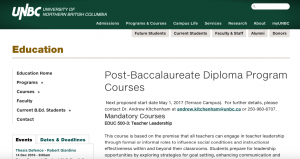
https://www.unbc.ca/education/post-baccalaureate-diploma-courses
This leads to my final thought. UNBC offers Graduate Programs in MDL (multidisciplinary leadership) and Special Education… and Diploma Programs in Terrace in Montessori and Curriculum & Instruction. Master programs are 600-level courses and Diploma programs are 500-level programs. We are also offering a course this spring that is a 300-level course in Teacher inquiry. I wonder how this course fits into the above programs, if it does. How does this inquiry course fit into the idea of Practicing Teachers attaining a 15+ designation? Can this course be transferred to a Diploma program? (I’d suspect not due to the 300-level of the course, but I’m asking). If we are considering having “electives” during the summer for practicing teachers and Teacher Candidates to possibly take, how do these courses transfer to currently offered programs? How can we offer 15+ programming in conjunction to our current diploma and graduate programs? Finally, how can we offer (or grow) post-baccalaureate programs for practicing teachers in partnership with our BEd program and Coaching Teacher recognition?
Submitted by: Christine Younghusband
